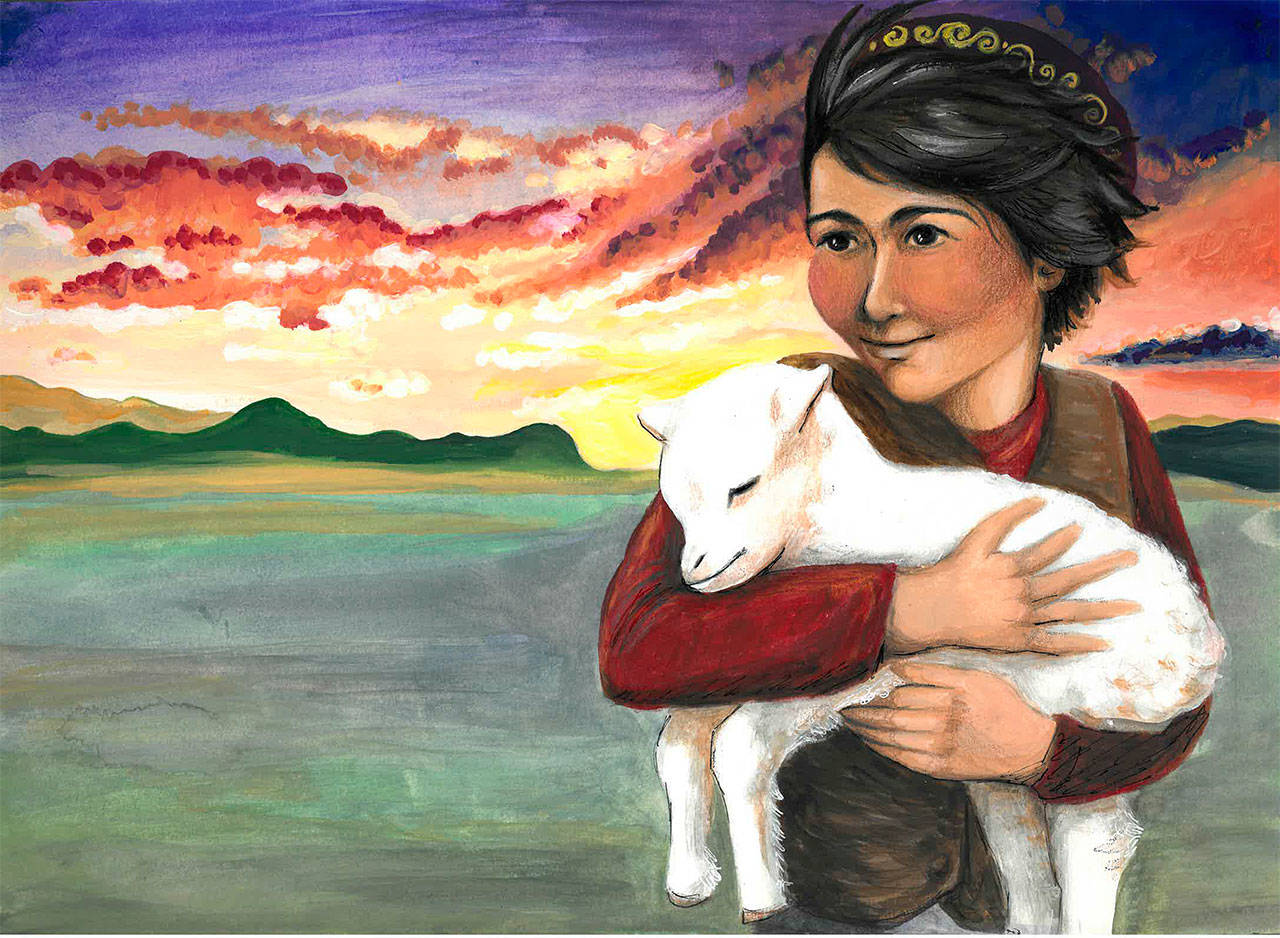Glory Cancro, a local artist and mother of three, wants to publish a book for Kazakh children.
Cancro, an active arts member in her Bonney Lake community, came to love the Kazakhs and their children when she was in Western Mongolia a decade ago. She wants to make literature available to them because there are no libraries in Western Mongolia where these Kazakh children live.
“For children to be able to read a book in their own language, and also have it be full color illustrations of someone that looks like them, who dresses like them… and who is just living life normal just like them” is extremely important, she said. “There’s very few books, and… what books there are usually in Russian or Mongolian. I want to provide a book in Kazakh for the kids there.”
She has reconnected with her language teacher from Mongolia, who has translated the book into Kazakh.
Cancro also wants to bring value to their unique culture and way of life, which has survived despite many challenges over the centuries.
“The original heart of this book is…for the local kids to really value themselves, not only themselves, but their culture,” she said.
The Kazakhs of Western Mongolia are ethnically completely different from Mongols of Mongolia. Their origins are in Central Asia, but they escaped Russian colonization in the late 1800s and preserved their culture, language, and religion by emigrating to Mongolia.
But according to Cacncro, Mongolia became Communist in the early 1900s, and 20,000 to 30,000 people died in the religious persecution that followed.
“[Kazakhs are] incredibly warm and wonderful people,” Cancro said. “[They] have a lot of pride in their uniqueness, in their language and in their way of life, their culture, their customs. They take a lot of pride in the fact that they’ve been able to keep that pretty much intact.”
They are traditionally Muslim, and their folk traditions are deeply integrated into their lives and religion. Living as semi-nomadic herdsmen, they move to different locations as the seasons change.
“They maintain a lot of animism and folklore that’s deeply, deeply ingrained in their way of life. They value their animals so much, they treat them with a lot of care,” Cancro said. “So the language is different from the rest of the country, the religion’s different, and so there’s very much a feeling of [being] threatened, even from the rest of the country because they’re trying to keep their kids marrying Kazakhs and staying.”
Cancro came to love these Kazakhs when she was in Western Mongolia serving with a Global Economic Outreach team, which helped the local people learn how to apply their natural skills to make a profit and be autonomous.
While in Mongolia, one of her teammates, Grace Williamson, was inspired to write a book for the children. Having kids of her own, Williamson saw the need for books in Western Mongolia.
Williamson asked Cancro to illustrate the book and they planned to publish it, but when they returned to the U.S., their dream faded as they returned to their former lives and their families took priority.
Recently, Cancro revived this dream, having been given the rights to the book.
She completed her illustrations and began searching for a publisher and working with some of her Kazakh friends on the design, ensuring that it is an accurate representation of their culture.
Cancro and her family are traveling back to Western Mongolia this August, and she plans to bring as many books with her as she can.
The book, called, “Where is My Lost Sheep?” follows a Kazakh boy who is looking for his lost sheep. The love and care for animals that is ingrained in his culture leads him to search the surrounding area for his lost lamb.
Cancro hopes that crowdsourcing the fundraising for the book will help people become invested in this project and learn about the Kazakh people in Western Mongolia. She would like to help people see that the Muslim religion is diverse and often peaceful, contrary to the Muslim stereotype in America, through showing the culture of the Kazakhs in the book.
“I’m hugely passionate about that,” she said. “Even my own kids, I’m always trying to remind them and help them understand because they’re so influenced by the culture around them, and the miseducation and stigmatism around Muslims.”
Cancro is dedicating this book to Altinai, one of the Kazakh women whom she came to love.
“She passed away, she was my best friend, and she really helped me care for my kids. She was the most nurturing, beautiful, wonderful person,” Cancro said. “[Altinai] was really like a mother to so many kids… this is a book that a mother will be reading to her kids, and so kind of that idea that we want to pass on her motherly spirit through this book.”
To donate to Cancro’s GoFundMe, visit https://www.gofundme.com/books-for-mongolia.
To visit Cancro’s blog, visit www.glorycancro.wordpress.com.


